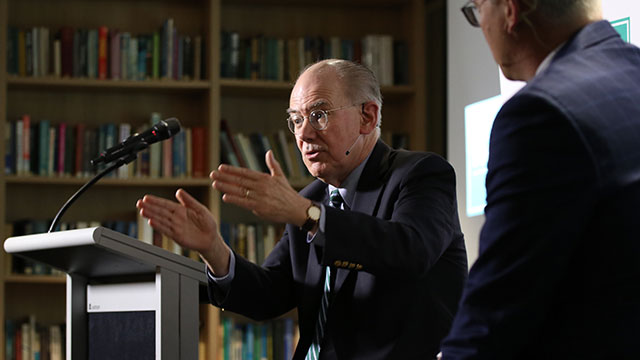
Nuclear weapons, because of their enormous destructive power, represent survival interests of states. Australia decided long ago that our best option was to rely on the United States for our nuclear security, rather than developing our own nuclear weapons. But our security environment has changed dramatically with the end of the Cold War. In future, we may continue to think that reliance on US ‘extended deterrence’ is the best choice for us. Still, we live in an uncertain world, and must avoid having our uranium enrichment options permanently closed off.
Currently, strategic developments in North Asia are being driven by North Korea’s dangerous missile and nuclear brinkmanship, as well as by the rapid pace of China’s force modernisation. It is an open question how long Japan and South Korea will be willing to remain dependent on American nuclear protection.
Japan, the only non-nuclear great power in North Asia, would be by far the most consequential proliferator. Moreover, Japan is feeling more insecure now than it did during the Cold War. That’s because American and Japanese interests, while still congruent, are not as congruent as they once were, especially in relation to China. Moreover, the Nuclear Nonproliferation ‘regime’ is unwinding, as the so-called international community is unable to prevent North Korea and Iran from flouting their obligations under the Treaty.
The US is hoping that Japan will remain content to rely for its nuclear security on the US ‘nuclear umbrella’ and the promise inherent in missile defence. But while pacifism and anti-militarism remain strong in Japan, we cannot afford to assume that Japan will remain content to rely on the US. Indeed, it is uncertain whether extended deterrence can work in a multi-threat security environment very different from that of the Cold War. And if one country decides it needs its own nuclear weapons, the ‘logic of deterrence’ is such that at least one other country is likely to respond in similar fashion.
Thus a faster pace of nuclear proliferation is now likely in North Asia, with potential repercussions from the China-Korea-Japan nexus on the India-Indonesia-Australia security subset. Indonesia, by far the most significant of the Southeast Asian states, cannot look to a nuclear great power for protection, as Australia is able to do. It is not unthinkable that Indonesia, faced with a ‘rising’ China and a ‘rising’ India, both expanding their nuclear arsenals and maritime capabilities, might come to think it needed nuclear weapons. So in future, nuclear threats could come to us from or through Indonesia, even though their roots would lie in the distant balance of power among the US, China and Japan.
If more countries in our region decided they needed nuclear weapons for their security, Australia would need to decide what is in its own best interests. Differences of strategic geography, not American perfidy or obtuseness, have meant that the US and Australia have not always seen eye-to-eye when it comes to Indonesia. The US is a global power with global security interests, and will always see us through that prism. We cannot be sure that we could rely on the US for extended deterrence if we ever came into serious conflict, in particular with Indonesia. Australia is important to the US, but so is Indonesia.
Moreover, America has a political system in which strategic policy can be subjected to the vagaries of domestic politics in ways that leave its friends and allies in the lurch.
The issue of whether uranium enrichment in Australia would be economically viable is subject to debate. But strategists, by definition a somewhat gloomy lot, always ask themselves the ‘what if ’ questions. In particular, when it comes to survival interests such as nuclear security, strategists ask what might go wrong in a self-help world without a common government or enforceable rules. That’s why we need to keep the uranium enrichment option open.
Robyn Lim is professor of international relations at Nanzan University, Japan, and Visiting Fellow at The Centre for Independent Studies. From 1988 to 1994 she worked at the Office of National Assessments in Canberra, where her last job was as acting head of intelligence. She is the author of The Geopolitics of East Asia: The Search for Equilibrium (2003).









